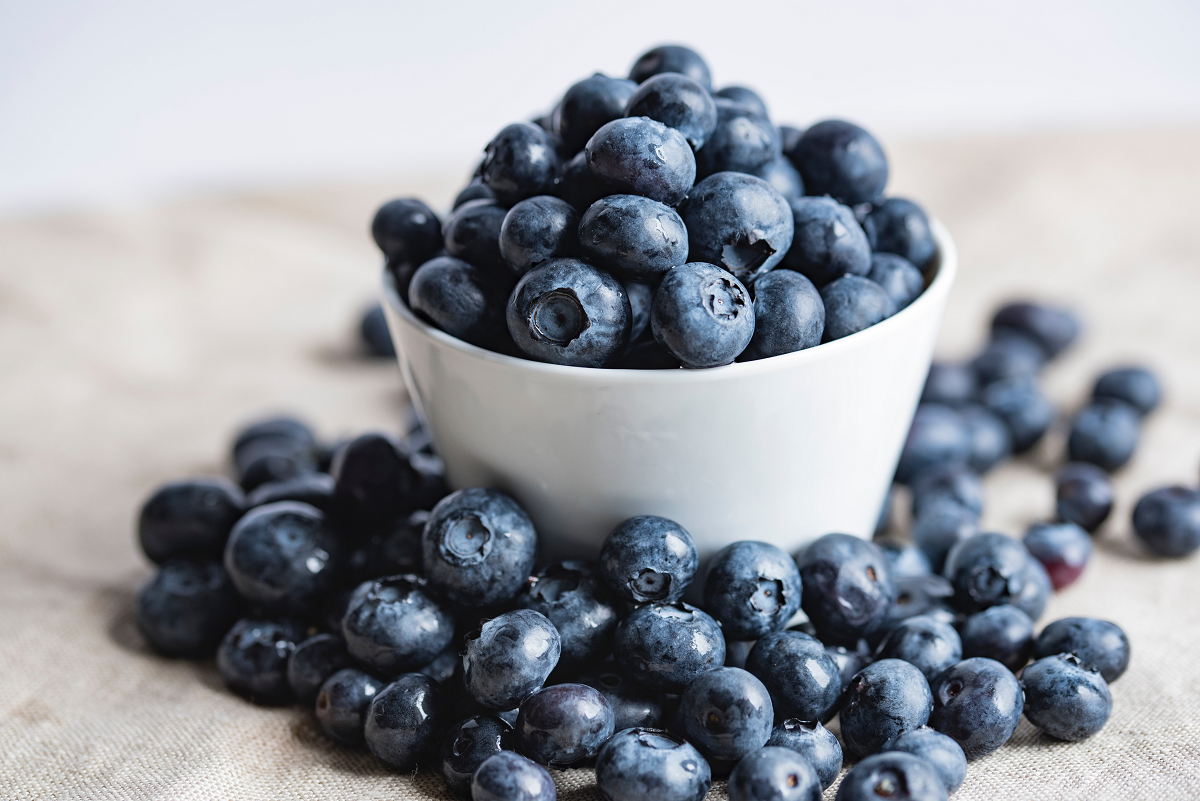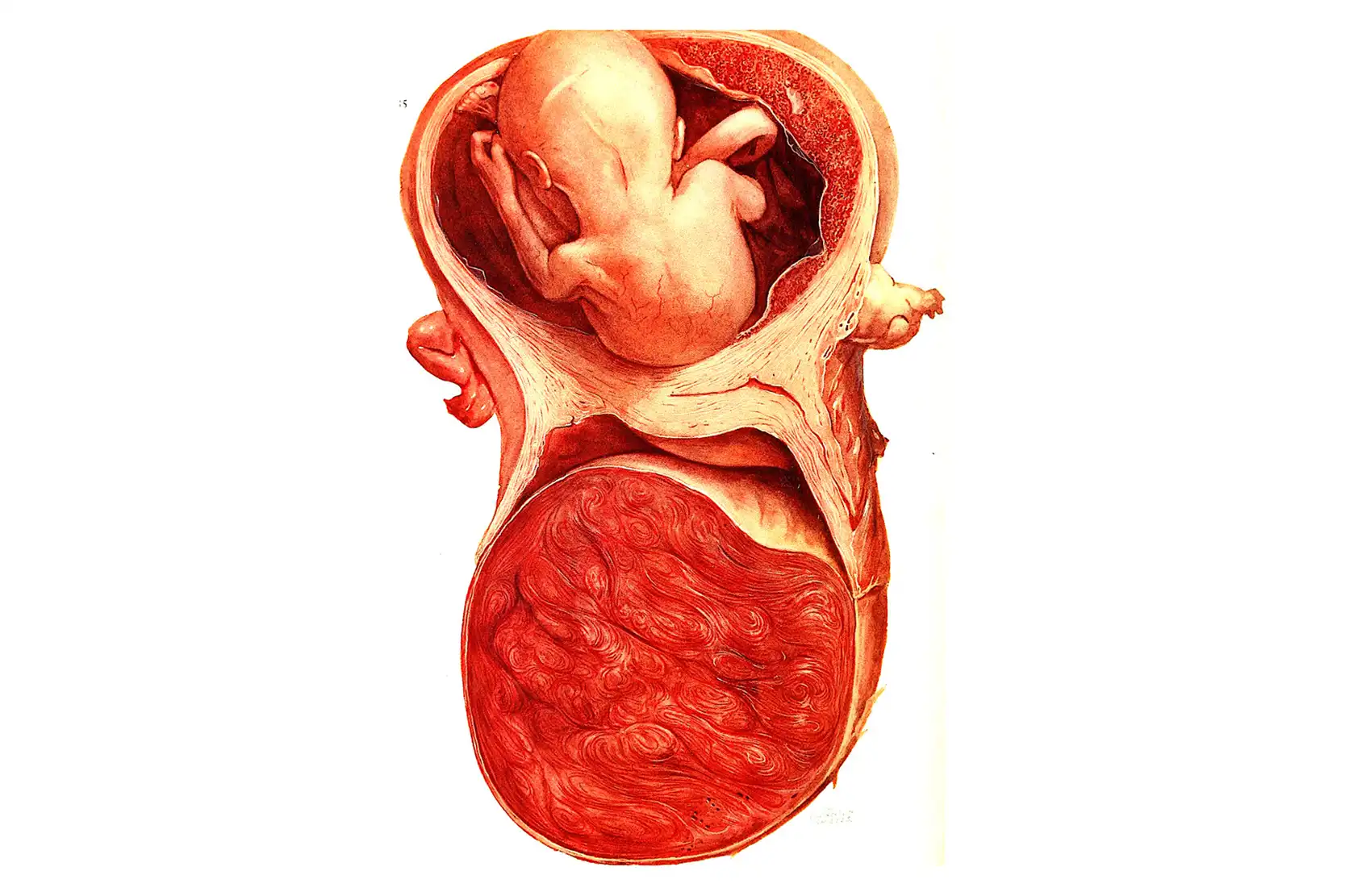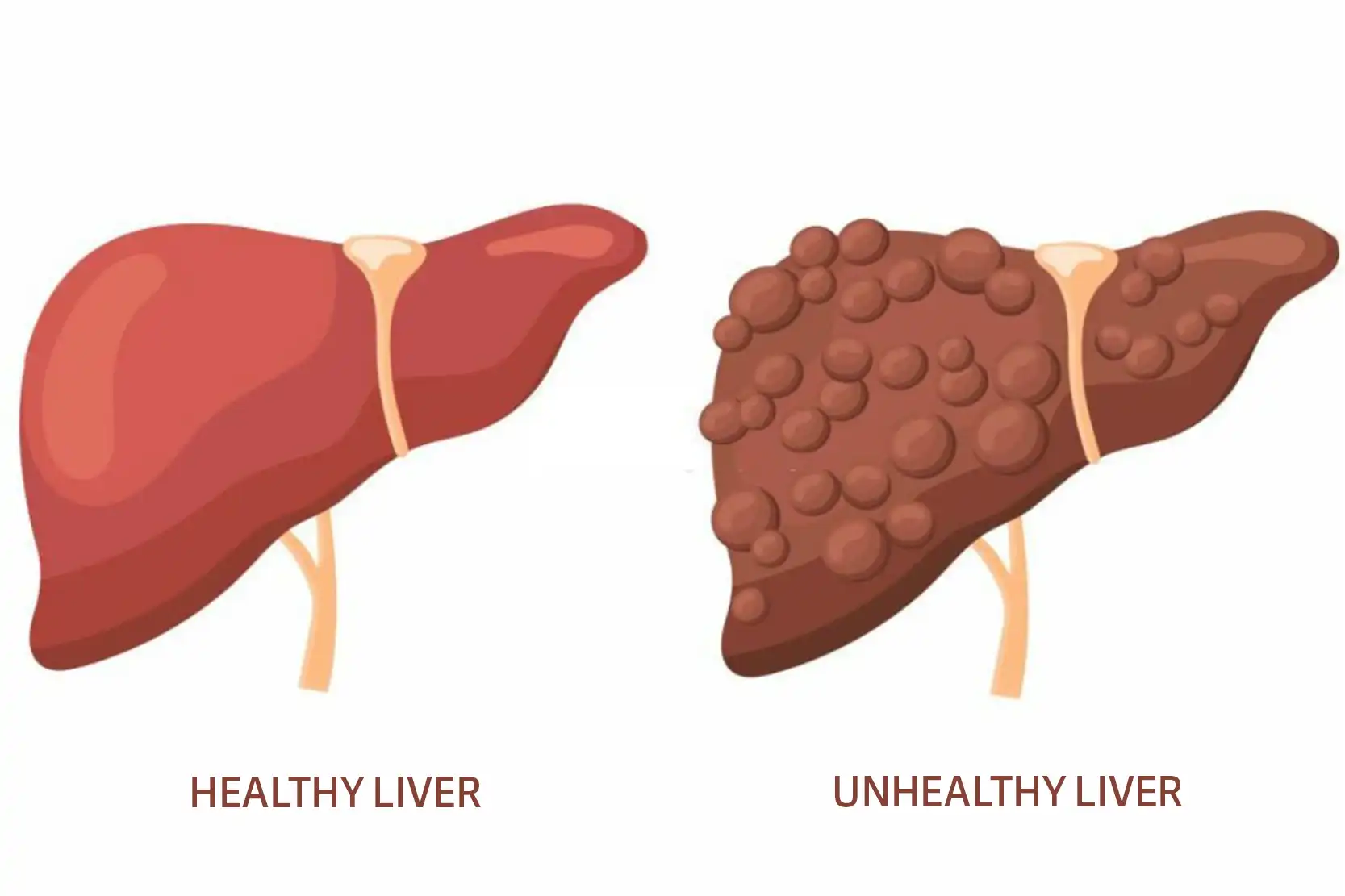
HEALTH BLOG
Does Lipton Tea Have Caffeine?: The Truth Behind The Brand
-
Rahul Priydarss
Discover everything you need to know about Lipton Tea and its caffeine content in our comprehensive guide. If you’ve ever wondered, “Does Lipton Tea Have Caffeine?”, we’ve got you covered. This article explores the caffeine levels in Lipton’s various tea offerings, including black, green, herbal, and iced teas. Learn about the caffeine content of each type, how it compares to other beverages, and find out which Lipton Tea is best suited for your needs. Whether you’re a tea enthusiast or simply looking to manage your caffeine intake, this guide provides valuable insights to help you make informed choices.
Introduction of Does Lipton Tea Have Caffeine?:
When it comes to choosing a refreshing beverage, Lipton Tea is a popular option for many. Known for its rich flavors and wide variety of blends, Lipton Tea has been a staple in households around the world. However, one common question that arises among tea drinkers is whether Lipton Tea contains caffeine. Understanding the caffeine content in Lipton Tea is important for those who are mindful of their caffeine intake or are looking to avoid it. In this article, we will explore the caffeine levels in different Lipton Tea varieties, the potential effects on health, and how it compares to other caffeinated beverages. Whether you’re a casual tea drinker or a connoisseur, this guide will provide you with the information you need to make an informed choice about your Lipton Tea consumption.
What is Lipton Tea:
Lipton Tea is a globally recognized brand of tea known for its extensive range of flavors and blends. Founded in 1890 by Sir Thomas Lipton, the brand has a long history of providing high-quality tea to consumers around the world. Lipton offers a variety of teas, including black, green, herbal, and iced teas, catering to different taste preferences and dietary needs.
Lipton Tea is known for its distinctive taste and consistent quality, which is achieved through careful sourcing of tea leaves and a rigorous production process. The brand’s teas are often enjoyed for their refreshing flavors and aromatic qualities. Lipton also emphasizes sustainability and ethical sourcing, working to ensure that its tea production practices support both environmental and social responsibility.
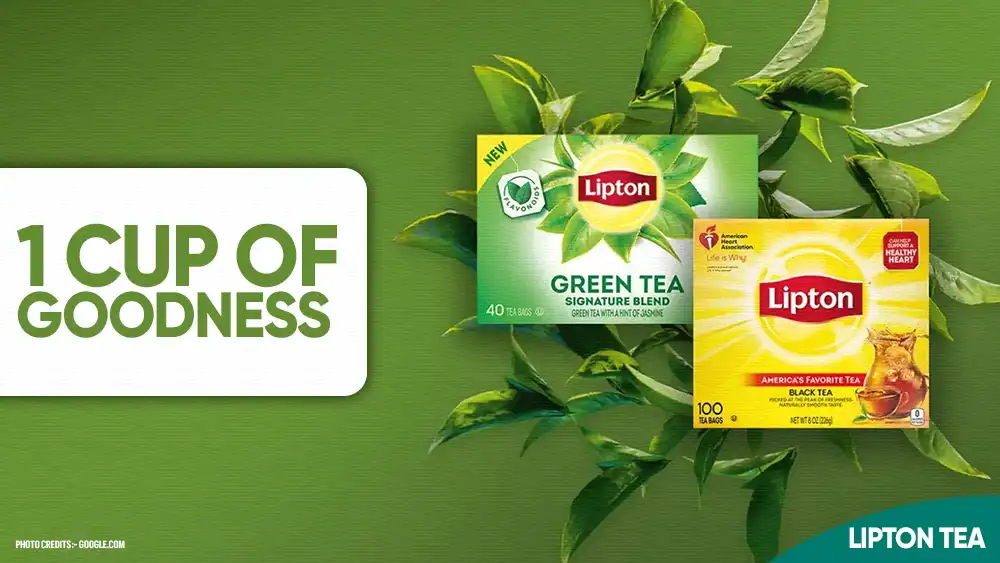
Table of Contents
Origin and History of Lipton Tea:
Lipton Tea has a storied history that dates back to the late 19th century, founded by Sir Thomas Lipton. Born in 1848 in Glasgow, Scotland, Thomas Lipton was an ambitious entrepreneur who initially made his mark in the grocery business. In 1890, Lipton ventured into the tea industry, driven by his vision to offer high-quality tea at affordable prices.
Lipton’s journey into the tea world began with the purchase of tea estates in Ceylon (now Sri Lanka), which allowed him to control the entire supply chain, from cultivation to distribution. This vertical integration was innovative at the time and ensured that Lipton could provide consistent quality and competitive pricing. By 1893, Lipton Tea was introduced to the public, featuring a distinctive blend of black teas that quickly gained popularity.
Lipton’s approach was groundbreaking in its marketing strategy as well. He was one of the first to use modern advertising techniques, including the creation of eye-catching packaging and extensive promotional campaigns. This helped establish Lipton Tea as a household name and made it widely accessible to consumers across different demographics.
Throughout the 20th century, Lipton continued to expand its product range and geographic reach. The brand introduced new varieties of tea, including green and herbal blends, and expanded into ready-to-drink iced teas. Lipton’s commitment to quality and innovation kept it at the forefront of the tea industry.
In recent decades, Lipton has also embraced sustainability and ethical sourcing practices. The company has implemented programs to ensure environmentally friendly farming and fair labor practices, reflecting a growing awareness of global responsibilities.
Today, Lipton Tea remains one of the world’s leading tea brands, known for its diverse selection of teas and continued dedication to quality. Its rich history and ongoing evolution have solidified its place as a beloved choice for tea drinkers around the globe.
What is PepsiCo:
PepsiCo is a global food and beverage company headquartered in Purchase, New York. Founded in 1965 through the merger of Pepsi-Cola and Frito-Lay, PepsiCo has grown into one of the world’s largest and most diverse food and beverage companies. The company’s product portfolio includes popular brands such as Pepsi, Mountain Dew, Tropicana, Gatorade, Quaker Oats, and Lay’s. This extensive range of products allows PepsiCo to cater to a wide array of consumer preferences, from snacks and beverages to nutrition products.
PepsiCo’s success is driven by its commitment to innovation and sustainability. The company invests heavily in research and development to create and improve new products. Additionally, PepsiCo has implemented various sustainability initiatives to reduce its environmental impact. These efforts include reducing water usage, lowering greenhouse gas emissions, and increasing the use of recyclable materials in packaging. PepsiCo aims to balance its growth with responsibility towards environmental and social issues.
The company’s global reach and diverse product range give it a significant presence in numerous global markets. PepsiCo operates in more than 200 countries and territories, allowing it to serve a broad and varied customer base. This extensive network supports the company’s ability to respond to local market trends and consumer demands, contributing to its continued success and growth in the competitive food and beverage industry.
Understanding What is Caffeine?:
Caffeine is a natural stimulant found in various plants, including coffee beans, tea leaves, and cacao pods. It is most commonly consumed in beverages like coffee, tea, and energy drinks. Caffeine belongs to a class of compounds known as xanthines, which act as central nervous system stimulants. Its primary function is to block the effects of adenosine, a neurotransmitter that promotes relaxation and sleepiness. By interfering with adenosine’s action, caffeine helps to increase alertness and reduce fatigue.
How Does Caffeine Affect the Body?: Caffeine affects the body in several ways.
Central Nervous System Stimulation: Caffeine is known for its stimulating effects on the brain. By blocking adenosine receptors, it helps increase the release of other neurotransmitters like dopamine and norepinephrine. This can lead to enhanced mood, increased energy levels, and improved concentration.
Increased Heart Rate and Blood Pressure: Caffeine can temporarily raise heart rate and blood pressure by stimulating the cardiovascular system. This effect is generally mild but can be more pronounced in individuals who are sensitive to caffeine or consume large amounts.
Enhanced Physical Performance: Caffeine can improve physical performance by increasing adrenaline levels and the release of fatty acids from fat tissues. This can lead to better endurance and reduced perception of effort during exercise.
Diuretic Effect: Caffeine has a mild diuretic effect, which means it can increase urine production. While this is usually not significant enough to cause dehydration, it can lead to more frequent urination.
Digestive System Impact: Caffeine can stimulate the production of stomach acid, which may affect digestion and contribute to digestive issues in some individuals.
Sleep Disruption: Due to its stimulating effects, caffeine can interfere with sleep patterns. Consuming caffeine close to bedtime can delay the onset of sleep and reduce overall sleep quality.
Tolerance and Dependence: Regular consumption of caffeine can lead to the development of tolerance, meaning that over time, the same amount of caffeine may produce reduced effects. Additionally, some individuals may develop a dependence on caffeine, experiencing withdrawal symptoms like headaches, fatigue, and irritability if they suddenly stop consumption.
Lipton Tea Varieties and Caffeine Quantity:
Lipton Tea offers a wide range of varieties, each with different caffeine levels depending on the type and preparation. Here’s an overview of some popular Lipton Tea varieties and their typical caffeine content.
1. Lipton Black Tea:
- Caffeine Content: Approximately 55-65 mg per 8 oz cup.
- Details: Lipton’s classic black tea is known for its robust flavor and is one of the most popular varieties. It generally has a higher caffeine content compared to other types of tea, similar to what you would find in coffee, though still less than most energy drinks.
2. Lipton Green Tea:
- Caffeine Content: Approximately 25-35 mg per 8 oz cup.
- Details: Lipton Green Tea offers a lighter flavor with lower caffeine content compared to black tea. It is known for its antioxidant properties and is a popular choice for those looking to reduce their caffeine intake.
3. Lipton Herbal Tea:
- Caffeine Content: Typically caffeine-free.
- Details: Lipton’s herbal teas, such as chamomile, peppermint, and rooibos, do not contain caffeine. These teas are made from herbs, flowers, and fruits, making them a suitable option for those who are sensitive to caffeine or prefer to avoid it altogether.
4. Lipton Iced Tea:
- Caffeine Content: Approximately 20-30 mg per 12 oz serving.
- Details: Lipton’s ready-to-drink iced teas, which come in various flavors like lemon and peach, generally have less caffeine per serving compared to brewed black tea. This makes them a refreshing option with moderate caffeine levels.
5. Lipton Matcha Tea:
- Caffeine Content: Approximately 70-80 mg per 8 oz cup.
- Details: Lipton’s Matcha Tea, which includes powdered green tea, has a higher caffeine content compared to traditional green tea. This is due to the nature of matcha, where the whole tea leaf is consumed, providing a more concentrated source of caffeine.
Ingredients of Lipton Tea:
| Ingredient | Quantity (per serving) |
|---|---|
| Black Tea Leaves | 2.0 grams (for 1 tea bag) |
| Water | 250-350 ml (for brewing) |
| Natural Flavors | Varies (typically less than 1%) |
| Citric Acid | Varies (used in flavored teas) |
| Sugar (for sweetened varieties) | Varies (typically 5-10 grams) |
Note: The exact quantities can vary depending on the specific type of Lipton Tea (e.g., Black Tea, Green Tea, Flavored varieties) and any additional ingredients used in flavored or sweetened versions.
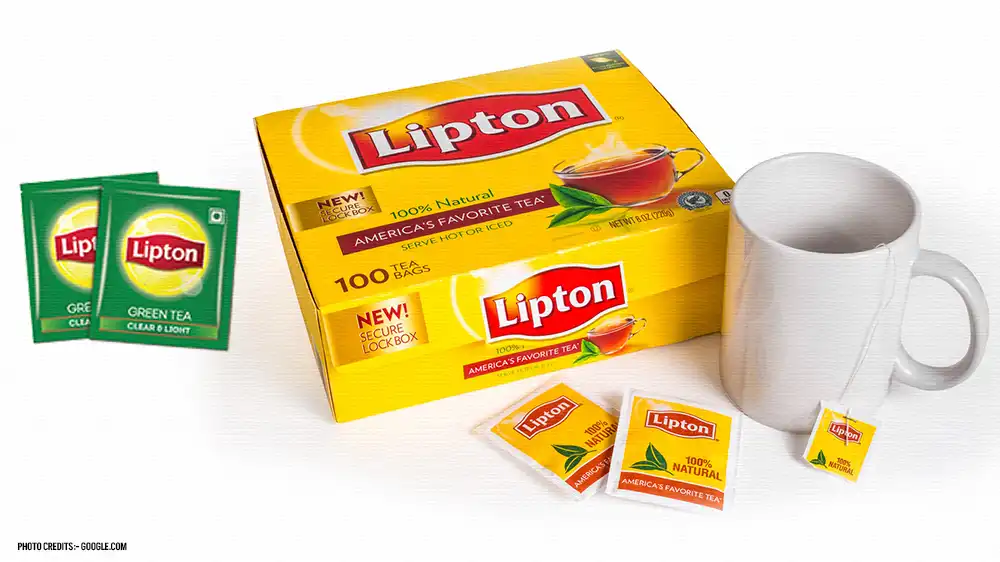
Does Lipton Tea Have Caffeine?:
Yes, Lipton Tea does contain caffeine, although the amount varies depending on the type of tea.
- Lipton Black Tea: Contains about 40-60 mg of caffeine per 8-ounce serving.
- Lipton Green Tea: Contains about 20-30 mg of caffeine per 8-ounce serving.
- Lipton Herbal Teas: Typically caffeine-free, as they are made from herbs, fruits, or flowers rather than tea leaves.
- Lipton Iced Tea: The caffeine content can vary but is generally similar to the hot tea varieties it is made from.
Lipton Hard Iced Tea:
Lipton Hard Iced Tea is a refreshing alcoholic beverage that combines Lipton’s iconic iced tea flavors with a 5% alcohol by volume (ABV). The product line features classic flavors such as Lemon, Peach, and Raspberry, blending real tea with natural fruit flavors for a crisp and enjoyable drink. Unlike traditional iced tea, Lipton Hard Iced Tea offers a moderate alcohol content, making it a suitable choice for those who enjoy a flavored beverage with an adult twist. It’s designed to deliver the same refreshing taste as Lipton’s non-alcoholic teas, but with the added kick of alcohol.
Available in convenient, ready-to-drink cans, Lipton Hard Iced Tea is ideal for social occasions and casual gatherings. It is crafted to appeal to both iced tea enthusiasts and those looking for a light alcoholic option. The product is often compared to other hard tea beverages in terms of taste and alcohol content, standing out for its well-balanced flavor profile and relatively lower ABV compared to some other alcoholic drinks. Its easy-to-serve format and familiar flavors make it a popular choice among consumers seeking a refreshing, flavorful drink with an alcoholic edge.
Lipton Tea Bags:
Lipton tea bags are a popular and convenient way to enjoy Lipton’s wide range of teas. Known for their consistent quality and rich flavors, Lipton tea bags are designed to deliver a full-bodied taste with ease of preparation. Each tea bag contains carefully selected tea leaves, which are processed to maximize flavor extraction. Lipton offers a variety of tea options in their tea bags, including classic black teas like English Breakfast and Earl Grey, aromatic green teas, and soothing herbal teas such as chamomile and peppermint.
The tea bags are individually wrapped to preserve freshness and ensure each cup is as flavorful as the last. They are designed for quick and straightforward brewing, making them a convenient choice for busy individuals. The design of Lipton tea bags allows for optimal infusion, ensuring a strong and consistent brew. Whether you’re looking for a robust morning tea or a relaxing evening herbal blend, Lipton tea bags provide a reliable and flavorful option to suit various tastes and preferences.
Comparing Lipton Tea with Other Tea:
When comparing Lipton Tea with Dogadan Tea, several factors come into play, including tea varieties, flavor profiles, caffeine content, and brand reputation. Lipton Tea offers a broad range of options, including black, green, herbal, and iced teas. Its black teas are known for their robust flavors, while the green teas provide a more delicate, vegetal taste. Lipton’s herbal and fruit teas are crafted to be flavorful and aromatic, with a variety of blends catering to different tastes and needs. On the other hand, Dogadan Tea, a prominent Turkish brand, specializes mainly in herbal and fruit teas, focusing on natural and soothing flavors. Dogadan’s offerings, such as chamomile, linden, and rosehip teas, are generally milder compared to Lipton’s black teas and emphasize the natural benefits of the herbs and fruits used.
In terms of caffeine content, Lipton Tea provides a range of options. Lipton’s black tea typically contains 55-65 mg of caffeine per 8 oz cup, while green tea has about 25-35 mg per 8 oz cup. Herbal teas from Lipton are caffeine-free, as are most of their fruit teas. Their iced teas contain approximately 20-30 mg of caffeine per 12 oz serving, and their Matcha Tea has about 70-80 mg per 8 oz cup. Dogadan Tea’s caffeine content is similar for its black tea, which has around 50-60 mg per 8 oz cup, and its herbal and fruit teas are generally caffeine-free, aligning with Lipton’s offerings in these categories.
Lipton Tea is a globally recognized brand with a strong presence and consistent quality, available widely in supermarkets and online. It has made notable efforts towards sustainability with ethical sourcing practices and environmental programs. Conversely, Dogadan Tea, while highly regarded in Turkey for its focus on traditional herbal and fruit blends, may have more limited availability outside its home market. Dogadan emphasizes natural ingredients, though detailed information on its sustainability practices may not be as widely communicated as Lipton’s.
Health Implications of Caffeine:
Caffeine, a widely consumed stimulant found in coffee, tea, and various other beverages, can have both beneficial and adverse health effects depending on the amount consumed and individual sensitivity.
Benefits of Moderate Caffeine Intake: Moderate caffeine consumption, typically defined as 200-400 mg per day (about 2-4 cups of coffee), can offer several health benefits. One of the primary advantages is enhanced mental alertness and cognitive function. Caffeine stimulates the central nervous system, which can improve focus, concentration, and overall mental clarity. This effect is particularly beneficial for individuals needing to stay awake and alert during periods of fatigue.
Caffeine also has physical performance benefits. It can increase adrenaline levels, which may enhance physical endurance and reduce the perception of effort during exercise. Studies suggest that caffeine consumption before exercise can improve performance, making it a popular choice among athletes.
Additionally, caffeine is associated with potential mood enhancement. It can increase the release of neurotransmitters like dopamine and serotonin, which may improve mood and help combat feelings of depression and anxiety. Furthermore, caffeine has been linked to a lower risk of certain diseases. Research suggests that regular, moderate caffeine consumption may be associated with a reduced risk of conditions such as Parkinson’s disease, type 2 diabetes, and certain types of cancer.
Potential Risks and Side Effects: While moderate caffeine intake can be beneficial, excessive consumption may lead to several risks and side effects. High doses of caffeine can cause nervousness, restlessness, and irritability. Overconsumption may also lead to anxiety and exacerbate pre-existing anxiety disorders.
Another common side effect is insomnia or disrupted sleep patterns. Caffeine can interfere with the ability to fall asleep and reduce sleep quality, particularly if consumed later in the day. This disruption can lead to a cycle of increased caffeine consumption to combat fatigue, further impacting sleep.
Digestive issues are another potential risk. Caffeine can stimulate the production of stomach acid, which may contribute to gastrointestinal discomfort, acid reflux, or ulcers in sensitive individuals. Additionally, caffeine has a mild diuretic effect, potentially leading to increased urination and dehydration if fluid intake is not adequately maintained.
For some individuals, especially those with certain medical conditions or sensitivities, caffeine can lead to elevated heart rate and blood pressure. Individuals with heart conditions or hypertension need to monitor their caffeine intake and consult with a healthcare provider regarding safe consumption levels.
Finally, regular consumption of high amounts of caffeine can lead to dependence. Individuals may experience withdrawal symptoms, such as headaches, fatigue, and irritability, if they suddenly stop consuming caffeine.
Choosing the Right Lipton Tea for Your Needs:
Selecting the right Lipton Tea depends on your individual preferences, health goals, and lifestyle needs. Lipton offers a diverse range of teas, each with unique flavors, benefits, and caffeine levels. Here’s a guide to help you choose the best Lipton Tea for your needs.
1. For Boosting Alertness and Energy: If you’re looking to enhance mental alertness and energy, Lipton’s black tea varieties are an excellent choice. Lipton Black Tea contains approximately 55-65 mg of caffeine per 8 oz cup, which can provide a robust pick-me-up similar to that of a cup of coffee. This is ideal for starting your day or staying focused during long work hours. Lipton’s black tea blends, such as English Breakfast and Earl Grey, offer strong flavors and a substantial caffeine boost.
2. For a Lighter, Refreshing Option: If you prefer a milder option with less caffeine, Lipton Green Tea is a great alternative. With about 25-35 mg of caffeine per 8 oz cup, it provides a gentle lift without the intensity of black tea. Lipton Green Tea is also known for its fresh, light flavor and potential health benefits, including antioxidants that may support overall well-being. This tea is a good choice for mid-day refreshment or a light, soothing beverage in the afternoon.
3. For Herbal and Caffeine-Free Choices: For those who need to avoid caffeine or prefer a more soothing tea experience, Lipton’s herbal tea range is perfect. Herbal teas like Lipton Chamomile, Peppermint, or Rooibos are naturally caffeine-free and offer various benefits, such as promoting relaxation or aiding digestion. These teas are ideal for winding down in the evening or for a calming break during the day.
4. For Convenience and Refreshment: If you’re looking for a convenient and refreshing beverage, Lipton Iced Tea is an excellent option. Available in flavors like Lemon and Peach, Lipton Iced Tea has about 20-30 mg of caffeine per 12 oz serving. It’s perfect for a quick, cold refreshment, especially during warmer months or after physical activity. It offers a lighter caffeine boost while providing a crisp, enjoyable flavor.
5. For a Boost in Antioxidants: If you’re interested in the health benefits of antioxidants, consider Lipton Matcha Tea. With about 70-80 mg of caffeine per 8 oz cup, Matcha Tea provides a higher caffeine content and a rich source of antioxidants. Matcha is known for its vibrant green color and potential health benefits, including enhanced metabolism and improved mood.
FAQs about Does Lipton Tea Have Caffeine?:
A1: An 8-ounce cup of Lipton Black Tea typically contains about 55-60 milligrams of caffeine.
A2: Yes, Lipton Green Tea contains approximately 30-40 milligrams of caffeine, making it a lower-caffeine option compared to black tea.
A3: No, Lipton Herbal Teas are caffeine-free.
A4: Lipton Iced Tea contains about 10-20 milligrams of caffeine per 16-ounce bottle, which is lower than the caffeine content in hot black tea but higher than some other iced tea options.
A5: Yes, consuming caffeine, especially later in the day, can affect your sleep patterns. It’s best to avoid caffeinated teas in the evening if you’re sensitive to caffeine.
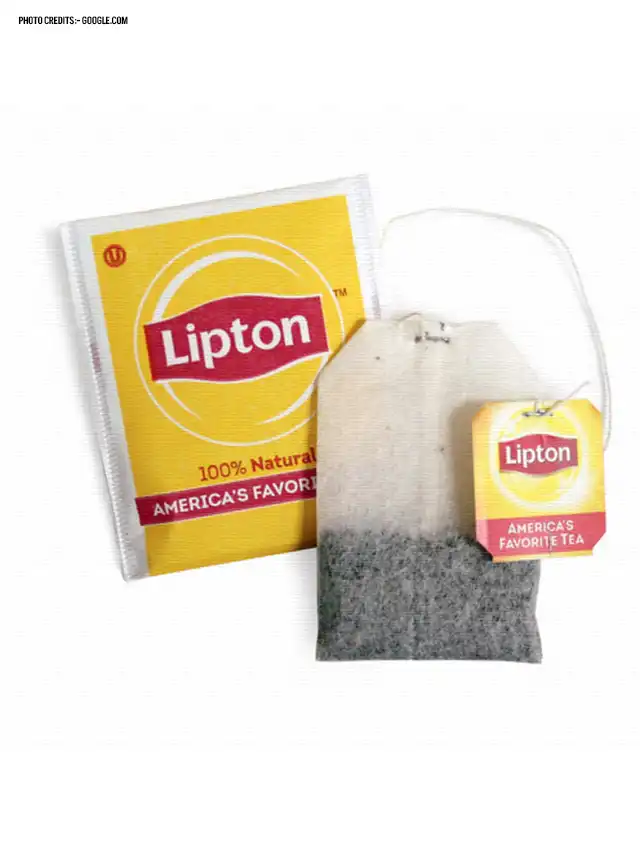
-Please remember, to always consult with healthcare professionals or Doctors for personalised advice related to medical conditions.
Conclusion:
In addressing the question “Does Lipton Tea Have Caffeine?”, it’s clear that Lipton Tea offers a range of options with varying caffeine levels. Lipton Black Tea contains approximately 40-60 mg of caffeine per 8-ounce serving, making it a robust choice for those seeking a significant boost. Lipton Green Tea provides a milder caffeine content of about 20-30 mg per serving, ideal for those looking to reduce their intake. For individuals avoiding caffeine altogether, Lipton Herbal Teas are a suitable choice as they are naturally caffeine-free. Additionally, Lipton Iced Tea, with its 20-30 mg of caffeine per 12-ounce serving, offers a refreshing option with moderate caffeine. Understanding these variations helps consumers make informed choices based on their caffeine preferences and needs.



